Related Research Articles
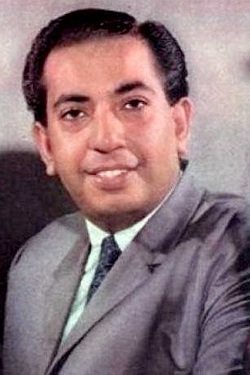
Mahendra Kapoor was an Indian playback singer. In a long career spanning decades, his repertoire included popular songs such as Chalo ekbaar phir se Ajnabi ban jayen hum dono (Gumrah) and Neele Gagan ke tale (Hamraaz). His name however became most closely associated with patriotic songs including Mere Desh Ki Dharti in Manoj Kumar's film Upkaar. He considered Mohammad Rafi as his Guru. In 1972, he was awarded the Padma Shri by the Government of India. He lent his voice to actor Manoj Kumar in most of his films and had a lengthy association with director-producer Baldev Raj Chopra.

Prabodh Chandra Dey, known by his stage name Manna Dey, was an Indian playback singer, music director, and musician. He had a classical music background, being part of the Bhendibazaar Gharana and receiving training under Ustad Aman Ali Khan. Manna Dey is widely recognized as one of the most versatile and celebrated vocalists in the Hindi film industry, and is often acknowledged for his significant contributions to integrating Indian classical music into Hindi commercial cinema. As a musician, Dey is particularly acclaimed for incorporating Indian classical music elements into a pop musical framework, a contribution that played a pivotal role during the golden era of Hindi cinema.

Ravi Shankar Sharma, often referred mononymously as Ravi, was an Indian music director who had composed music for several Hindi and Malayalam films.
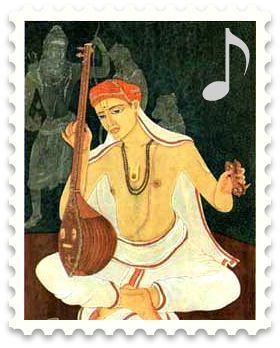
Chhattisgarh is a state of India with strong tribal traditions of music and dance. The state of Chhattisgarh is best known for its deep roots in folk music, which originated from its long history of tribal involvement.
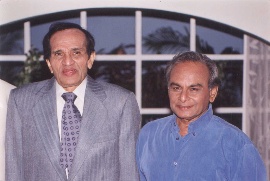
Kalyanji–Anandji were an Indian composer duo: Kalyanji Virji Shah and his brother Anandji Virji Shah. The duo are known for their work on Hindi film soundtracks, with many evergreen songs being composed by them.

Suman Kalyanpur is an Indian playback singer who is most notable for her work in Hindi cinema. She recorded songs for movies in several languages besides Hindi, Bengali, Marathi, Assamese, Gujarati, Kannada, Angika, Bhojpuri, Rajasthani, Odia and Punjabi.

Tanuja Mukherjee, known mononymously as Tanuja is an Indian actress who predominantly works in the Hindi film industry. Part of the Mukherjee-Samarth family, she is the daughter of actress Shobhna Samarth and producer Kumarsen Samarth, younger sister of actress Nutan and was married to filmmaker Shomu Mukherjee, with whom she has two daughters, actresses Kajol and Tanisha. A recipient of two Filmfare Awards, Tanuja is best known for her roles in the Hindi films like Memdidi (1961), Chand Aur Suraj (1965), Baharen Phir Bhi Aayengi (1966), Jewel Thief (1967), Nai Roshni (1967), Jeene Ki Raah (1969), Haathi Mere Saathi (1971), Anubhav (1971), Mere Jeevan Saathi (1972), Do Chor (1972) as well as in Bengali films like Deya Neya (1963), Antony Firingee (1967), Teen Bhubaner Pare (1969), Pratham Kadam Phool (1970), Rajkumari (1970). Her pairings with actors Uttam Kumar, Rajesh Khanna, Dharmendra, Sanjeev Kumar were popular in the late 1960s and early 1970s.
Ghulam Haider (1908 – 9 November 1953; also known by the honorary title Master Ghulam Haider) was a Pakistani music composer who worked both in India and later in Pakistan after its independence in 1947.

Ustad Amanat Ali Khan was a Pakistani classical vocalist from the Patiala gharana tradition of music and is widely regarded as one of the finest classical and ghazal singers of all time. Together with his younger brother, Ustad Bade Fateh Ali Khan, he formed a famed singing duo that garnered widespread popularity across the Indian subcontinent. For his contributions to classical music, Amanat Ali was honoured with the highest national literary award of Pakistan – the Pride of Performance – by the President of Pakistan in 1969. Khan was especially noted for khayal, thumri, and ghazal styles of singing and has been described as "the maestro of the Patiala gharana." He stands with singing icons like Mehdi Hassan and Ahmed Rushdi, having left behind a legacy of hundreds of classical and semi-classical songs.

Sanjay Narvekar is an Indian actor who works in Hindi and Marathi cinema. He mainly is a Marathi actor, who works in TV shows and films.
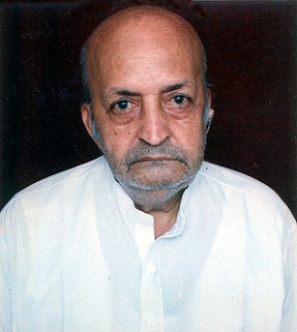
Lalji Pandey, better known by the pen name of Anjaan, was an Indian lyricist known for his work in Hindi language films. Having penned over 1,500 songs for more than 300 films, he is remembered for tracks from his frequent collaborations with composers Kalyanji–Anandji, Laxmikant-Pyarelal, R. D. Burman and Bappi Lahiri. Lyricist Sameer is his son.

Masood Rana (Urdu: مسعُود رانا), was a Pakistani film playback singer. He began his singing career in 1962 with the film Inqalab, became one of the top male singers in Urdu and Punjabi films for more than three decades and remained a busy singer until his death in 1995.

Amit Kumar is an Indian playback singer, actor, music composer. Kumar launched his own music production company, named Kumar Brothers Music. He predominantly worked in Bollywood and regional film songs since the 1970s, including 150 Hindi and Bengali compositions by R. D. Burman. After Burman's death in 1994, citing a lack of quality music composition, Kumar withdrew from playback singing and concentrated on live orchestra shows. In addition to singing in Hindi, has also performed in Bengali, Bhojpuri, Odia, Assamese, Marathi and Konkani. He is the eldest son of singer-actor Kishore Kumar.
Nashad was a film composer and music director of Indian and Pakistani film industry. He composed music for Hindi films in the 1940s and 1950s, credited on-screen under the names Nashad and then later migrated to Pakistan in 1964.
Hindi wedding songs are a major genre of Hindi film music. They often form the backdrop of some very memorable emotional or joyful scenes in Hindi movies. They are often played during Indian, and other South Asian weddings.
Chandrani Mukherjee is a former Bollywood playback singer, she is a sister-in-law of Bappi Lahiri from West Bengal and a Filmfare nominee.
Chandrani began her career in Bollywood with the film Aag Aur Toofan in 1975. Thereafter she sang in a couple of films until her swan song in Aaj Kie Aurat (1993). She was nominated for the Filmfare Best Female Playback Award thrice though she never won it.
Zama Habib, also known as Zaman Habib, is a Mumbai-based Indian television writer and lyricist. He has written serials such as Sasural Genda Phool, , Nimki Mukhiya, Nimki Vidhayak, Ishaaron Ishaaron Mein, Sapna Babul Ka...Bidaai, Ek Hazaaron Mein Meri Behna Hai, & Saas Bina Sasural. Currently he is writing Yeh Rishta Kya Kehlata Hai. He is the script consultant of Anupamaa.

Mathura peda is a North Indian sweet dish that originated from Mathura in India. In North India sweets prepared from mawa (khoya) are very popular and the peda is also a mawa sweet variety. Mathura peda is so famous in North India that the term is often used in aphorism like Mathura ka peda au Chhattisgarh ka kheda means "(famous are) the peda sweet of Mathura and helmet in Chhattisgarh." Mathura acts as a brand name for peda sweet. While visiting Mathura, Mathura ke pede, Meva vati peda and export quality special peda are common souvenirs popular with visiting tourists.
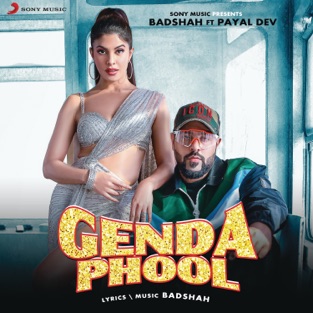
"Genda Phool" is a 2020 Hindi pop song by Indian rapper Badshah featuring playback singer Payal Dev. The music video for the song features Sri Lankan actress Jacqueline Fernandez, and Badshah. It stood as the 4th most-watched music video on YouTube for the year 2020 across the world. It has above 1 billion views on YouTube as of September 2023. The song is a remake of the song Boro Loker BitiLo originally sung by Swapna Chakraborty. The main verse 'Boroloker Beti lo' is taken from the Bengali folk song which was originally written, composed and tuned by Ratan Kahar. This Bengali folk song was very popular during the late 60s and 70s in West Bengal and Bangladesh.

Ratan Kahar is a Padma Shri awarded folk singer from West Bengal state of India.
References
- ↑ "Field Songs of Chhattisgarh"
- ↑ "Famous Dadaria Singers"
- ↑ "Genda Phool". Archived from the original on 2016-03-11. Retrieved 2022-02-21.
- ↑ "Popular Dadaria Songs"